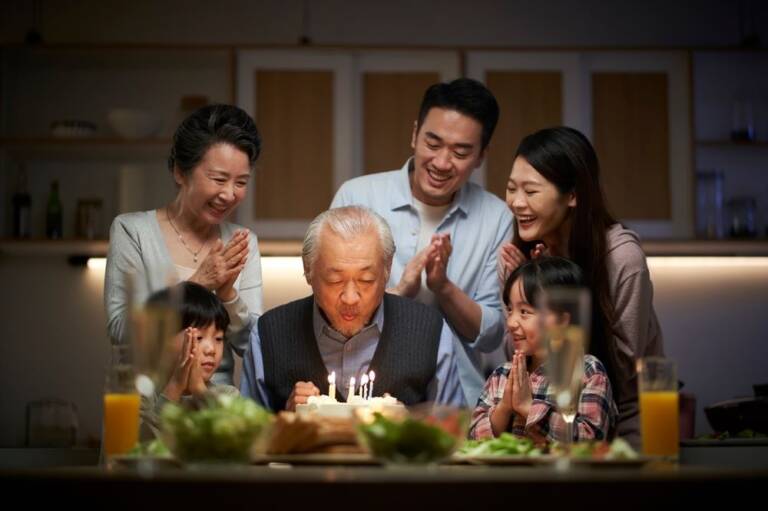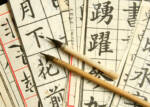Chinese Birthdays: All You Need to Know

Everybody loves birthdays, and it’s no different in China. But have you ever wondered how Chinese birthdays differ from those in the West? Or how to wish someone a happy birthday in Chinese?
In today’s post, we delve into the unique aspects of Chinese birthday traditions and celebrations, answering questions like “Why are Chinese birthdays different?” and “What is a traditional Chinese birthday?”.
Chinese people, while not usually big on celebrating birthdays, do hold birthday parties for the little ones and the elderly. They are starting to adopt some Western customs, but customary Chinese birthdays adhere to a particular tradition and have some taboos. Let’s jump straight in.
Related Reading: The Ultimate Guide to Learning Chinese Online
Counting ages in Chinese culture
The Chinese count the years differently because they consider a newborn baby already one year old. So when a child turns two (one in the West), they throw a second birthday party for the infant. This is one of the ways Chinese also celebrate their birthdays that differ from those in the West.
On the child’s second birthday, they surround them with symbolic items. It is an attempt to predict the child’s future, so if the child picks up the money, they will be wealthy when they are older, or if they reach for a toy airplane, they might be destined to travel.
You can politely inquire about someone’s approximate age by simply asking for their Chinese zodiac sign. Then you know which year the person was born. You can read about the Chinese New Year and Zodiac Sign in this post.
Special birthdays in Chinese culture
Many Chinese people don’t celebrate their first birthday until they turn 60. 60 and 80 are extraordinary ages and are often celebrated in a prominent manner with the whole family and with a big banquet. These are some of the most important first birthdays celebrated in China.
Related Reading: The Definitive Guide to Chinese Proverbs, Sayings, and Quotes
Chinese birthday taboos
Chinese birthdays must always be celebrated either before the actual birth date or on the birthday. A belated celebration is a big taboo. Depending on their gender, they might not celebrate their birthdays in specific years or skip the number. Women don’t honor their 30th birthday, for example. The year 30 is considered a year of danger and uncertainty. Therefore Chinese women, to avoid having bad luck, just remain 29 for an extra year.
When a woman turns 33, she has to buy a piece of meat, hide behind the back kitchen door, and chop the meat 33 times before throwing it away. This is believed to ward off evil spirits.
When she turns 66, she needs the help of a female friend or her daughter, who has to chop the meat 66 times for her to ward off evil.
For Chinese men, it is just the year when they turn 40. To dodge bad luck, men remain 39 until they celebrate their 41st birthday.
Food for Chinese birthdays
The standard Western birthday cake can be found during Chinese birthdays nowadays too.
Traditionally, the birthday child or person slurps longevity noodles with their family. After cooking longevity noodles, celebrators eat long noodles and have to be careful not to break them, just eating them as one continuous strand. Usually, one single noodle will fill up a whole cup. These noodles are also known as long-life noodles or 伊面 yī miàn.
Other foods you might find at a birthday banquet are dumplings for good fortune, and hard-boiled eggs dyed red. Chinese red eggs (红蛋, 红鸡蛋 Hóngdàn, hóng jīdàn) symbolize joy and renewed life.
There are also longevity peaches that are called 寿桃 shòu táo. They are a type of lotus seed bun, sometimes filled with either red bean paste or lotus paste.
You typically get longevity peaches and serve them to the elderly for reaching old age. They are a representation of the Peaches of Immortality. According to legends, these peaches ripen only every thousand years and grant immortality when eaten.
Related Reading: How to Order Chinese Food in a Chinese Restaurant
Presents for Chinese birthdays
Be careful when giving someone a birthday gift in China. They tend to be low-key and only necessary for children and the elderly.
The most traditional gift is a red envelope called “红包 hóng bāo,” which usually contains lucky money and is given discreetly. Gotta love a bit of lucky money! However, remember that Chinese people consider it impolite to draw any attention to the act of giving and receiving a gift.
It is common practice with Chinese children to take them to a store to pick out the toy they want. Gift giving is not like it is in Western society, where they wrap the presents and present them to the birthday boy/girl.
This is to avoid embarrassment for buying the wrong gift and show some transparency of the price of the present. For the Chinese, the cost of the gift establishes the respect one has for the receiver of the present.
Related Reading: Best Way to Learn Mandarin By Yourself: 15 Essential Tips
Wishing someone a happy birthday in Chinese
- Happy Birthday — This is the traditional “Happy Birthday.” In Chinese, it’s pronounced as “shēngrì kuàilè” and written as “生日快乐.”
- I wish you a happy birthday — This phrase doesn’t get used as often, but it includes “wish” and “you.” In Chinese, it’s pronounced as zhù nǐ shēngrì kuàilè (祝你生日快乐)
- Happy birthday! May you live to be a hundred years old! — You would say this to older people to wish them a long life. In Chinese, it’s pronounced as zhù nín shēngrì kuàilè, chángmìngbǎisuì! (祝您生日快乐,长命百岁!).
- Happy Birthday! May you stay young forever! — This one, you would say to a young woman. In Chinese, it’s pronounced as zhù nǐ shēngrì kuàilè, qīngchūnyǒngzhù! (祝你生日快乐,青春永驻!).
- Happy birthday! Wishing you professional success! — This phrase is often used for men. In Chinese, it’s pronounced as zhù nǐ shēngrì kuàilè, shìyèyǒuchéng! and written as 祝你生日快乐,事业有成!
- Happy birthday! I hope you will be happy every day! May you achieve perfect happiness! — For friends, you would most likely say this phrase. In Chinese, it’s pronounced as zhù nǐ shēngrì kuàilè, tiāntiān kāixīn, xìngfúměimǎn! (祝你生日快乐,天天开心,幸福美满!).
- Happy birthday! May you achieve success in your studies! — If you wish a child a happy birthday, you might use this phrase. In Chinese, it’s pronounced as zhù nǐ shēngrì kuàilè, xuéyèyǒuchéng! and written as 祝你生日快乐,学业有成!
So now, if you’ve already mastered the phrase 祝你生日快乐 (zhù nǐ shēngrì kuàilè), then you already know how to sing the Happy Birthday song in Chinese. All you need to do is sing this phrase four times like you would with the English song.
Chinese birthdays vs. American birthdays
You might be wondering, “What is the difference between Chinese and American birthdays?” While there are similarities, such as the joy of celebrating another year of life, there are also significant differences.
For instance, the Chinese lunar calendar plays a significant role in determining one’s actual birthday in China. This is unlike in the West, where birthdays are celebrated according to the Gregorian calendar.
In China, the birth date is not as important as the lunar date. This means that a person celebrating the first anniversary of their birthday in China might have two birthdays celebrated: one according to the lunar calendar and one according to the Gregorian calendar.
Related Reading: 50 Chinese Slang Words to Make You Sound Like A Native
The importance of birthdays in Chinese culture
Birthdays in China are not just about celebrating another year of life. They are deeply rooted in Chinese history and Chinese tradition. The way birthdays are celebrated, the foods eaten, and even the gifts given all have symbolic meanings.
For example, eating long noodles on one’s birthday is believed to bring long life, while red eggs symbolize joy and renewed life. The act of gift-giving, particularly the giving of red envelopes filled with money, is also a significant part of the birthday celebration.
Chinese birthday superstitions
China is rich in superstitions, and birthdays are no exception. Certain birthdays are considered more important than others, and there are specific rituals and taboos associated with these special birthdays.
For instance, it’s considered bad luck to celebrate one’s birthday after the actual birth date. Also, certain ages are considered unlucky, and people might choose to “skip” these birthdays to avoid bad luck.
Related Reading: Thank You in Chinese
The evolution of birthday celebrations in China
As China continues to open up to the world, the way Chinese celebrate birthdays is also evolving. While traditional Chinese birthday traditions are still upheld, especially among the older generation, younger Chinese people are increasingly embracing elements of Western culture in their birthday celebrations.
The traditional birthday banquet is often replaced or supplemented by a birthday party with friends at a restaurant or a karaoke bar. The birthday cake, a staple of Western birthday celebrations, has also become a common feature at Chinese birthday parties.
Related Reading: Chinese Wedding Cake Traditions
The role of family in Chinese birthday celebrations
In China, family is of utmost importance, and this is reflected in how birthdays are celebrated. The immediate family members usually play a significant role in organizing the birthday celebration, whether it’s a grand banquet for a 60-year-old or the first birthday party for a child.
The birthday girl or boy is often showered with love and attention from family members. In addition to the family, close friends are also invited to join the celebration, making it a big deal.
Birthday gifts in Chinese culture
Gift-giving is an integral part of Chinese birthday traditions. However, it’s important to note that the practice of gift-giving in China differs significantly from that in Western culture.
In China, the most traditional gift is a red envelope filled with money, which is given discreetly. The act of giving and receiving a birthday gift is considered a private matter, and Chinese people find it impolite to draw attention to it.
As mentioned above, for children’s birthday parties, it’s common for the birthday boy or girl to be taken to a toy store to pick out their own gift. This practice not only ensures that the child gets a gift they like but also shows transparency in the price of the gift.
Related Reading: Declining an Invitation: How to Say “Not This Time” In Chinese?
The significance of food in Chinese birthday celebrations
Food plays a huge role in Chinese birthdays. The birthday person is usually treated to a special meal, which often includes the already mentioned long noodles.
In addition to longevity noodles, other foods might also be served:
- Peach Buns: Also known as longevity peaches or “shòutáo” in Chinese, these are steamed buns that are shaped like peaches and often have a sweet filling. They symbolize longevity and are traditionally served to the elderly on their birthdays.
- Birthday Wine: In some regions of China, it’s customary to drink a special wine on one’s birthday. This wine is often homemade and aged, with the number of years corresponding to the age of the person celebrating their birthday.
- Fruits: Certain fruits are often served during Chinese birthdays due to their symbolic meanings. For example, peaches symbolize longevity, while oranges and tangerines symbolize good luck and wealth.
- Chicken: A whole chicken is often served at birthday meals, symbolizing completeness and prosperity. The head and feet are usually left intact to represent wholeness.
- Fish: Serving a whole fish is a common practice in Chinese birthday celebrations. The word for fish in Chinese, “yú,” sounds like the word for surplus, symbolizing abundance and prosperity in the coming year.
Remember, the specific foods served can vary greatly depending on the region and personal family traditions.
Related Reading: Giving Compliments In Chinese: 35 Examples
Chinese zodiac and birthdays
The Chinese zodiac, a cycle of 12 years, each represented by an animal sign, also plays a role in Chinese birthday traditions and celebrations. Each Chinese person is associated with a zodiac sign based on their birth year, and this sign can influence their personality traits and destiny.
Related Reading: Can You Learn Chinese In 5 Minutes?
Reflecting on the cultural significance of birthdays in China
Whether it’s a grand banquet or a simple meal with family and friends, a Chinese birthday celebration is a unique blend of tradition and modernity. From the way ages are counted to the foods eaten and gifts given, each aspect of a Chinese birthday is imbued with symbolism and cultural significance.
Chinese birthdays are a fascinating blend of tradition, superstition, and celebration. Whether it’s a first birthday party, a grand feast for a 60-year-old, or a simple family gathering, each celebration is a testament to the importance of birthdays in China.
So the next time you’re invited to a Chinese birthday celebration, you’ll know what to expect and how to wish your Chinese best friend a happy birthday in their language. And remember, when it comes to celebrating birthdays in China, it’s not just about age. It’s about the journey of life.
Learn how to pronounce and also learn Chinese characters for free with our 14-day free trial giving you full access to our entire curriculum. You’ll be able to read, write and pronounce Chinese characters and get an overall “plan of attack” for your ENTIRE Chinese journey all the way to fluency and literacy.








